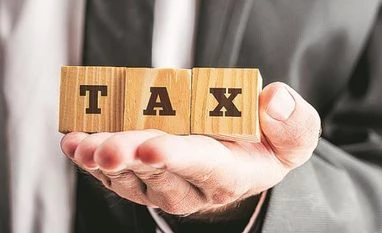The film industry has been raising protest against attempts to impose LBET, at first fixed at around 30 per cent, following the implementation of GST, which is at 28 per cent. While the plan was suspended by the government in July, the authorities in Chennai has imposed a 10 per cent tax on Tamil language movies and 20 per cent non Tamil movies in Chennai.
This has once again raised protest from the industry and on October 4, the multiplexes decided to shut shops, which was expected to impact around Rs 100 crore loss for them. The Tamil Nadu Film Producers' Council has announced it would not release any movies from October 6, which pointed at a crisis just before Diwali releases. At least six to seven new releases were postponed due to the protest in the recent weeks.
However, with the decision to reduce the entertainment tax from 10 per cent to 8 per cent, the movies will be released during Diwali, later next week, said Abirami Ramanathan, president of Tamil Nadu Cinema Theatre Owners Federation.
"It is good that the government has decided to reduce the tax. I don't think people would mind paying Rs 8 in addition to a Rs 100 ticket. The movies will be now released for Diwali," he said. It may be noted that some of the big ticket movies including Mersal, starring Vijay, and Aramm by actress Nayanthara, are expected to be released during this Diwali.
He added that the government has also agreed to increase the ticket prices, for multiplexes it would be between Rs 50 and Rs 150, Air Conditioned theatres Rs 40 and Rs 100 and non air-conditioned theatres Rs 30 and Rs 80. An official announcement will come next week, he said.
Tamil Nadu Film Producers Council said that the industry will look at reducing the internet booking charges on the tickets and other methods to make things smoother. After the government announcement, which came after several days of negotiation between the producers council and theatres, the council said that the movies will be released on Diwali as planned.
Under the erstwhile indirect taxes regime, State Governments were levying an entertainment tax on exhibition of films in cinema theaters and multiplexes. With the advent of GST, entertainment tax levied by State Governments was subsumed in GST, and hence, State Governments have stopped charging entertainment tax on cinema tickets, since these were subject to GST.
However, Tamil Nadu has empowered local bodies within Tamil Nadu to start levying entertainment tax, in addition to GST, and in pursuance thereof, the Greater Chennai Corporation has notified that it will start levying a 20 per cent entertainment tax on non-Tamil films and a 10% entertainment tax on Tamil films, in addition to the 28 per cent GST being levied on cinema tickets being sold within Chennai.
The industry alleged earlier that the levy of LBET by Chennai Corporation leads to double taxation, on an industry which is already reeling under the impact of high tax rates and piracy, and could well sound the death knell of the film industry.
LBET significantly increases the tax cost for cinema exhibition and hence is inflationary. It goes against the principle of "One Nation, One Tax" and frustrates the GST model, and leads to the same problems that have plagued industry so far - a multiplicity of very high tax incidences.
To read the full story, Subscribe Now at just Rs 249 a month
Already a subscriber? Log in
Subscribe To BS Premium
₹249
Renews automatically
₹1699₹1999
Opt for auto renewal and save Rs. 300 Renews automatically
₹1999
What you get on BS Premium?
-
Unlock 30+ premium stories daily hand-picked by our editors, across devices on browser and app.
-
Pick your 5 favourite companies, get a daily email with all news updates on them.
Full access to our intuitive epaper - clip, save, share articles from any device; newspaper archives from 2006.
Preferential invites to Business Standard events.
Curated newsletters on markets, personal finance, policy & politics, start-ups, technology, and more.
Need More Information - write to us at assist@bsmail.in
)